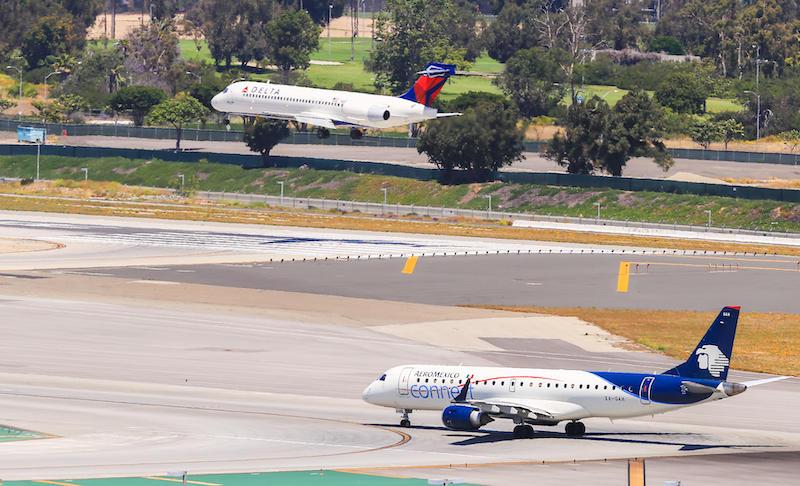
DUBAI—IATA hopes the U.S. government will extend the tentative deadline for Delta Air Lines and Aeromexico to wind down their joint venture so that further dialogue between the U.S. and Mexican governments can take place.
The Transportation Department (DOT) in January issued a tentative decision stating it would not renew antitrust immunity between the two SkyTeam partners after determining Mexico was not in compliance with the air transport agreement it has with the U.S. That order said that antitrust immunity for the airlines would terminate on Oct. 26.
Speaking at the IATA Annual General Meeting in Dubai, Peter Cerda, IATA regional VP for the Americas, says the move to end the JV has come “at the worst possible time,” citing Mexico's election of a new president and the U.S. presidential election taking place in November.
“The timing couldn't be worse given we have [potential] changes to two administrations,” he tells Aviation Week on the sidelines of the AGM. “We’re hoping that the U.S. government extends the deadline to wind down the JV and that no hasty decisions are made.”
Cerda is calling on the respective governments to engage in further talks to “find a pathway” that will enable the continuation of JVs between U.S. and Mexican carriers. “The issue here is not just about Delta and Aeromexico—it’s about giving consumers many more options. If we do away with joint ventures, it will have major implications for cross border connectivity and growth.”
In February, Delta and Aeromexico warned the DOT that termination of the JV would place 23 nonstop frequencies on 21 U.S.-Mexico routes at risk of cancellation. These frequencies account for approximately 1.8 million roundtrip seats annually.
Of the 21 transborder routes identified, 16 are at risk of being canceled altogether. They include Atlanta-Merida, Boston-Mexico City, Los Angeles-Monterrey and Salt Lake City-Guadalajara.
Cerda says: “The U.S. and Mexican governments need to sit down and discuss a reasonable partnership which benefits the entire industry, otherwise there will be detrimental effects and an impact on connectivity. Routes will be eliminated, and costs will increase.”
The DOT believes Mexico violated the air transport agreement between the countries by requiring all-cargo operators to move from Mexico City’s main airport, Benito Juárez International Airport (MEX), to Felipe Ángeles International Airport, as well as by imposing new flight operation limits at MEX, reducing them from 52 per hour to 43.
“Mexico returning slots at MEX that were taken away without proper consultation nor following World Airport Slot Guidelines, would already be a step in the right direction," Cerda says.
As previously reported, Delta has been working with the U.S. government to create a less punitive solution to the tentative decision to terminate the JV, which was launched in 2017. Delta EVP external affairs Peter Carter said a final decision could be made over the coming weeks.





